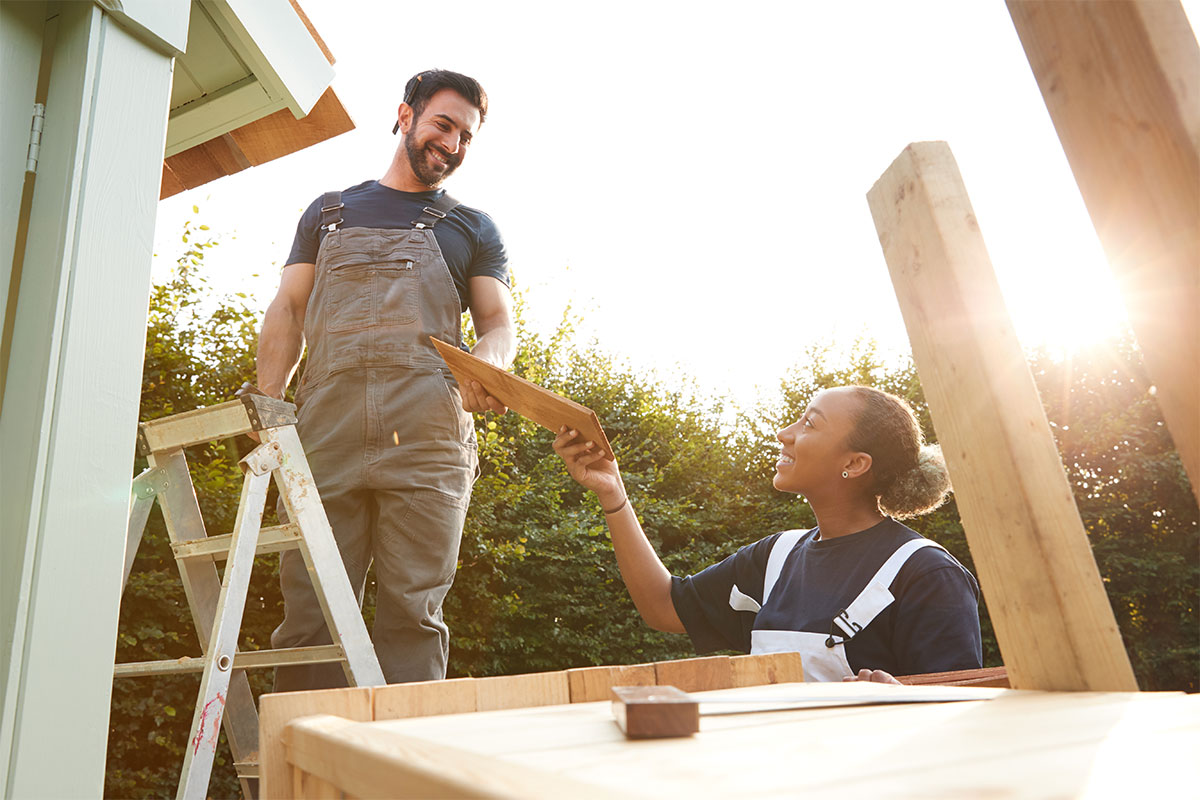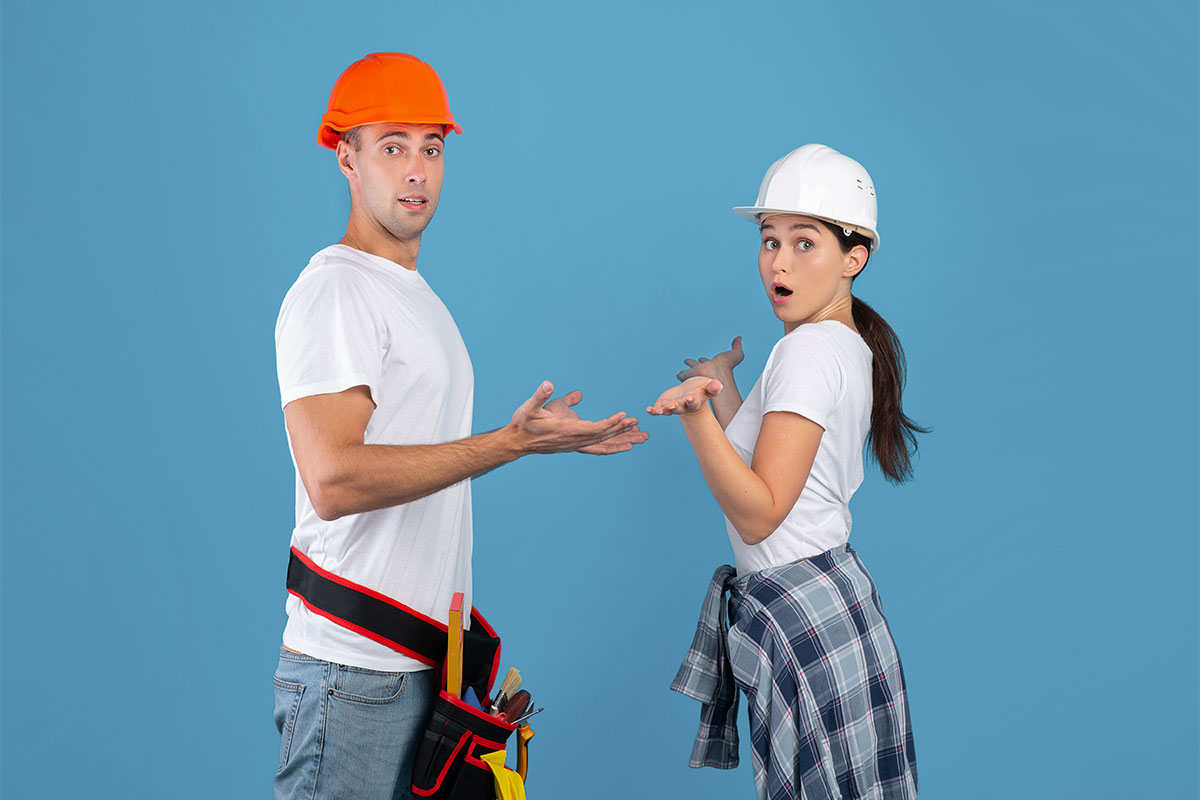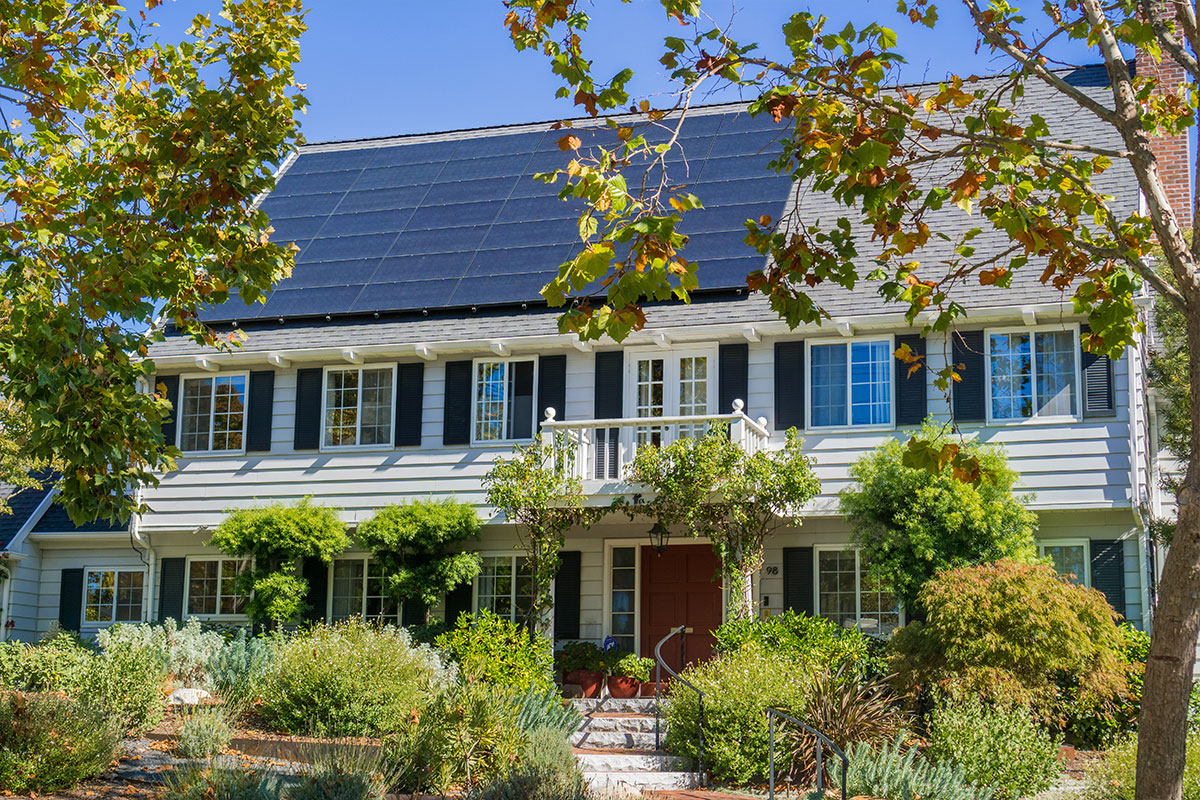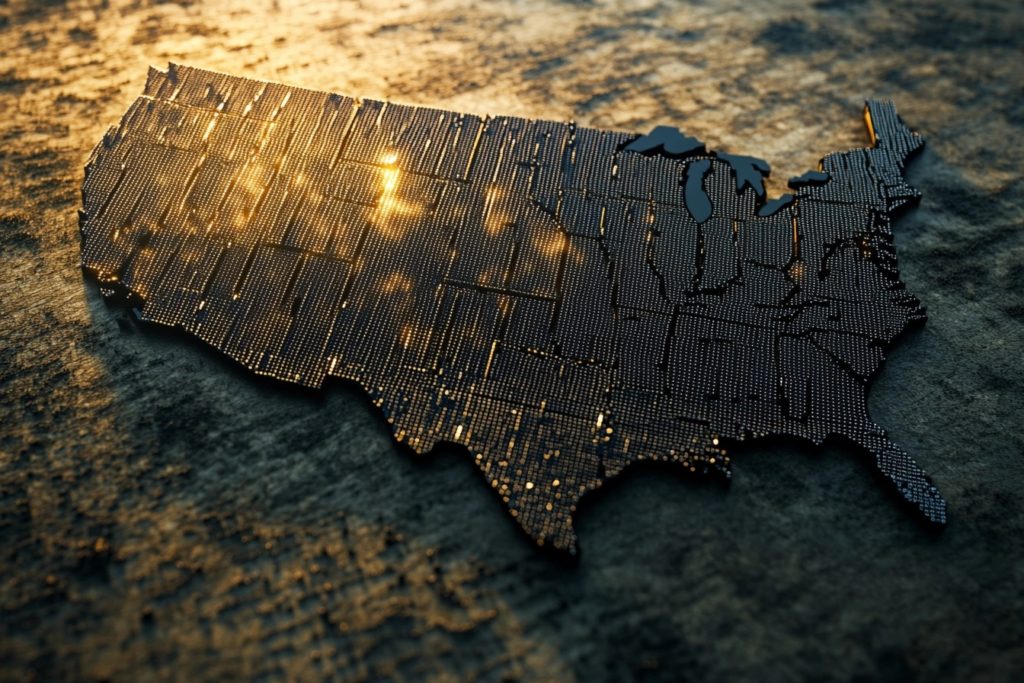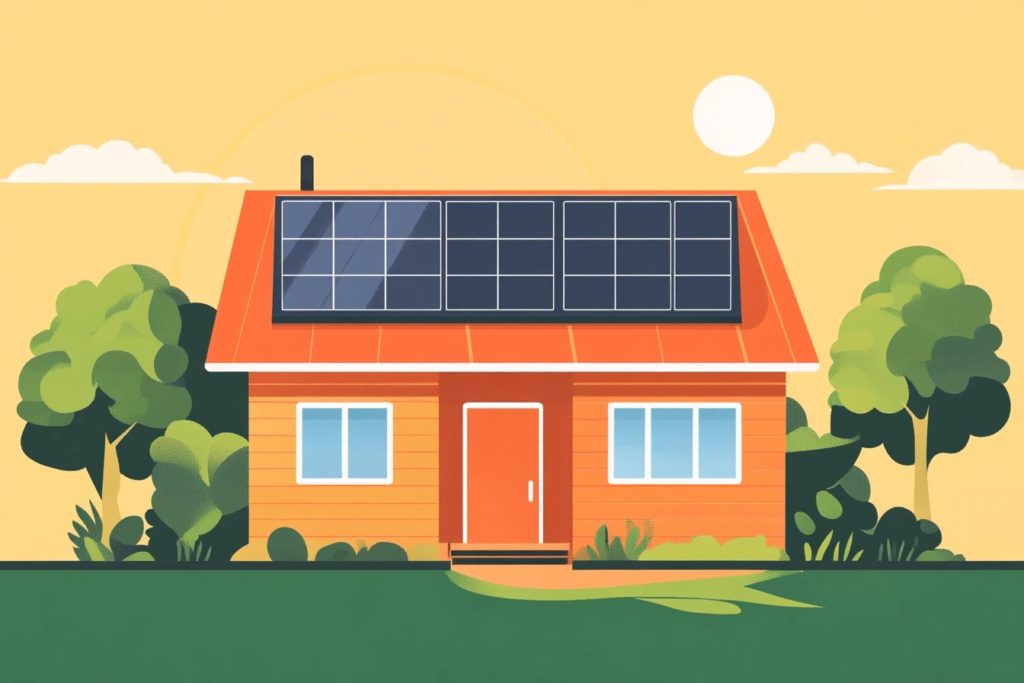You’ve finally decided to make the switch to solar panels at home. But now you’ve come to the part where you’re weighing all of your options. A few of your neighbors, co-workers, and friends who went with LGCY Power for their solar conversion couldn’t be happier, saving significant money on their power bills.
But you’re also considering DIY solar panel installation after watching a few YouTube videos. You probably think the DIY route will save you money (it won’t, as we documented here) And you’ve even gone as far as to Google, “Can you install solar panels yourself?”
Now would be a good time to STOP and strongly reconsider. The fact is that trying to install solar panels yourself can (and probably will!) cause serious damage to your roof and even your home – not to mention the fact that it’s dangerous for non-professionals.
It’s not that solar panels cause damage to your roof – it’s when a homeowner or non-professional tries to install them that ROOF problems multiply (significantly increase).
Remember that most solar panels are affixed to a roof using a complex but battle-tested system involving bolts, straps, and nails. Although before you take out your hammer, screwdriver, and drill, weekend warriors should hit pause.
Whew, we may have saved you from a terrible decision!
So why is installing solar panels yourself such a bad idea?
Ask any roofing contractor and they’ll shake their head in dismay at the mere idea of a homeowner getting up on their own roof and installing solar panels – or doing any major work to such a crucial facet of your structure.
According to roofing and construction professionals, there are four commons reasons why DIY solar installs cause havoc:
- Leaks
- Less thermal protection
- Installing on an older, damaged, or wrong type of roof
- Possibly void the roof warranty
Let’s go over each of these briefly:
Leaks
When you install the new solar panels to your roof, you’ll most likely do so with a rack system that’s affixed with nails and lag bolts. Those nails or bolts pierce the roof shingles, membrane, and wood layer, driving them into the subroof or rafters below.
(If you find yourself wondering what a membrane or subroof is, you definitely should abandon your DIY ambitions and call LGCY Power right now!)
Obviously, that leaves a hole right in your roof – which is not an issue when you use a professional installer. Pros use a system of high-tech flashing and sealant or tar to plug and waterproof the holes.
Lastly, the pro installer will meticulously test the roof to make sure there are no weak spots, gaps in waterproofing, or issues.
The sound of holes in your roof may sound precarious, but when handled by licensed, professional installers like those who team up with LGCY Power, the roof’s waterproofing and structural integrity are not compromised at all.
With DIY solar panel installation, it’s very common that homeowners find a nasty, very wet, and extremely expensive surprise the first time it rains. The cost of any potential roof leak or water damage to your home is exponentially higher than the cost of doing it right the first time with a professional installer!
Less thermal protection
Without solar panels, direct sunlight barrages your roof all day, every day, heating up the attic or space below. But once panels are in place, it absorbs most of that heat, creating a cooling effect on the roof and structure below. According to a prominent study published in Phys.org, solar panels can reduce a home’s internal temperatures by up to 5 degrees in the summer, making solar panels an even bigger energy efficiency winner.
However, when homeowners try to install panels themselves, they’ll likely fail to optimize that cooling potential.
Installing on an older, damaged, or wrong type of roof
Certain types of roof materials are more vulnerable to issues with leaking, cracking, and other damage. If your roof consists of wood shingles (also called ‘shake’), or clay, slate, or terracotta tiles, you won’t want to install solar panels into those surfaces.
Instead, pro installers know where to replace or augment specific areas of your roof, so they are good connecting points for solar panels.
Another common problem with DIY solar panel installation is when homeowners try to add a new solar system to an older roof. Over time, shingles, membrane, flashing, etc. all deteriorate, creating cracks, soft spots, or dry rot. Installing new solar panels to those roofs can expose and accelerate those problems – which means more leaks and potential water damage.
Instead, a pro installer will carefully inspect your roof before installation, fixing or replacing problem areas to ensure the roof is in optimal condition to house solar panels. When you turn to LGCY Power for your solar needs, our industry-leading installers will also check your roof for slope, exposure to sunlight, the building height, potential wind, and your roof’s load-carrying capacity and framing.
Unless a homeowner happens to be a licensed roofing contractor, those are all things they’ll miss!
Other problems with DIY solar installation
We’ve talked a lot about the roof, attic, and rafters, but haven’t even touched on the home’s electrical system, which must be correctly wired to the solar panel system. Incorrect wiring, the use of the wrong materials, and other issues cannot only reduce your new solar system’s efficiency but can be flat-out dangerous.
Contact LGCY Power for more information about installing a residential solar system the right way, saving you money and also avoiding potential problems from DIY installation!
There’s no doubt that solar power at home will save you significantly on your power bills, and the cost savings of going solar is attracting more people than ever to make the change. However, a small number of homeowners attempt to install the solar panels themselves instead of hiring a licensed, experienced professional firm like LGCY Power.
Why would someone choose to DIY their solar panel installation instead of hiring the right pro?
The Perception of Cost Savings
The perception of cost savings is the main reason to undertake DIY solar panel installation. According to a Pew Research Center survey about solar power at home, 96% of people who were interested in solar thought it would save them money on their electric bills, which was by far the most prevalent reason.
But will DIY home solar panel installation really add up to significant savings at the end of the day? Or does the potential risk and opportunity costs actually make it a more expensive option in many cases?
First off, let’s address how much money you THINK you may save if you opt for the DIY solar option. According to market data by the National Renewable Energy Laboratory, the costs for design, installation, and labor only contribute about 10% of the final bill.
For penny-pinching, coupon-clipping, frugal homeowners who are considering DIY solar panel installation; at best, you’ll potentially save only about 10% of the total cost!
Sure, you can head over to Home Depot, Costco, or go online and easily shop for a home solar kit. At that point, it may seem like you’re saving a couple of bucks on solar. However, the results will probably be as bad as if you tried to order a DIY swimming pool in a box and expected it to last twenty or thirty years.
An established and reputable firm like LGCY Power offers state-of-the-art equipment and solar panels that typically aren’t available to the general public.
Even if it was possible for you to buy these parts and materials on your own (it isn’t), you’d be shocked at how much you’d have to pay as an individual, not a firm doing business in volume.
DIY Home Solar Panel Kits
DIY home solar panel installation kits that are available to the average person through retail stores not only have a larger profit margin, but offer panels, materials, and equipment that are of far lesser quality.
If you do manage to properly install your new (cheap) DIY solar panels and connect the system successfully (which the vast majority of homeowners cannot and do not), they certainly will yield you less power and therefore little savings.
Remember that you’re buying solar panels not just to install them but to use them. So, installing bad panels that don’t work very well just to save a little on up-front costs is like stepping over a dollar to save a penny. But when installation is handled by the pros, you can feel confident that it will save you an exponential amount of money in the long run.
DIY Home Installers Miss Out on Tax Incentives and Credits
Saving the biggest cost benefit for last, DIYers frequently miss out on the tax incentives and credits that are available for solar. Solar firms like LGCY Power make it their business to know every credit, incentive, rebate, and new tax code that deals with solar for homeowners.
In fact, the federal solar tax credit is 26% until 2023, which basically gives you a 26% discount on your solar system’s value.
Update: In August 2022, the solar tax credit was increased to 30% and extended through 2032.
But there’s no way the average consumer who undertakes DIY solar panel installation has knowledge of these tax savings, nor do they know how to fill out the paperwork to apply and access them.
Even if you did have a whole lot of free time and energy to go through that learning curve, in some states, these tax incentives aren’t available to the homeowner unless they’ve used a licensed contractor to install their solar panels and connect their system.
If you’re serious about saving with solar at home and want to make sure you do it the right way, contact LGCY Power today!
Over the last ten years, we’ve seen the hot trend of Do-It-Yourself home improvements, promoted by plenty of reality TV shows. And while we’re all tempted to roll up our sleeves and become DIYers around the house, there are some occasions when it doesn’t save you money. In fact, when it comes to DIY solar installation, you’ll not only squander a whole lot of your valuable time, but will end up spending far more, will probably do damage to your roof or home, and can even put yourself in danger.
You may even see advertisements for DIY solar panel installation kits or systems, but once you make that purchase, you’ll find yourself way over your head and with no place to turn. Going solar at home is far more complex and involved than just jumping up on your roof and attaching the panels, and there’s good reason why the DIY solar option is more fantasy than reality.
In this series of articles, we’ll cover the four reasons why DIY home solar panel installation is a bad idea, including:
- Paperwork, permits, and regulations
- The cost
- Potential damage to your roof and your home
- DIY danger!
Today, let’s look at #1: the paperwork, permits, and regulations that make DIY solar installation unrealistic.
Solar Installation Paperwork
The paperwork necessary to initiate, install, and finalize your solar installation adds up to scores of pages quickly and can even measure up to the stack of documents necessary when you sign a home loan!
If you try to go the DIY solar panel installation route, the burden of finding, organizing, and submitting all of that paperwork will fall on YOU, the homeowner.
To mention a few, you’ll first probably have to file for a permit with your local building and planning department. Typically, they’ll want to see a detailed site plan that outlines the specs of the solar install. But that also includes an electrical diagram, including the calculations showing that the new solar system is compatible with the home’s existing power grid, as well as safe.
If that doesn’t make you throw up your hands and call LGCY Power instead of going the DIY route, you’ll also need to submit plans and specifications to your local utility provider to get their permission to even connect your proposed home solar system to their power grid.
Even if you get through that arduous and very detailed process, most building departments will only issue permits if you can show that professional contractors with specific certifications or licensing are doing the work. And there are no easy exceptions for DIY solar installation! When it comes to electrical, solar, and power systems in your home, the licensing requirements are in place to protect you, the homeowner.
The river of paperwork flows on when it comes to the rebates, incentives, and tax credits that may be available when you transition to solar. Part of the reason why solar power is so cost-efficient is the availability of various rebates and incentives, which may be offered on a state, local, or federal level. Of course, those incentives come only after filling out the necessary paperwork and going through the stringent application process.
Solar Tax Rebates
The same is true of tax rebates that may be available from your state and also federal taxes with the Internal Revenue Service, including the highly valued Federal Solar Investment Tax Credit.
Want to access a financially lucrative grant such as the USDA REAP Grant or take advantage of solar renewable energy credits (SRECs)?
Unless you know what’s available and have vast experience accessing grants, tax credits, and other incentives, I can almost guarantee that you’ll leave a lot of money on the table when trying to DIY your solar panels.
Even if you could find a way to navigate that huge paperwork process, there’s another profound reason why you don’t want to try DIY solar installation: the warranty.
When you coordinate your solar with a company like LGCY Power, there may be warranties and guarantees available on the equipment, production, and installation, safeguarding your investment.
However, DIYers will surely lose out on those warranties, as well as all of the other benefits and financial incentives!
So, if you’re ready to get serious about saving with solar at home and making sure you do it right, contact LGCY Power today!
As solar power becomes increasingly popular all across America, homeowners might be looking for ways to save money on solar panel installation costs. Specifically, some people are installing their own residential solar panel systems instead of hiring professionals. After all, if you can tackle tasks like painting your own house, replacing your own flooring, and gutting your own kitchen, why can’t you DIY a solar installation?
One of the main reasons people install solar panels in the first place is to save money on their electric bills. Therefore, some people might think that a DIY solar installation is another way to cut costs. As it turns out, there are plenty of good reasons to stick with professional solar panel installation companies instead of setting up your own system.
Complexity and Hassle
While it may seem simple on the surface, there is actually quite a bit of complexity involved with solar panel installation. If you don’t know what you’re doing, you could get in over your head in a hurry. When you hire a reputable solar installation company, you’re getting a licensed professional who has been certified by your state government. There are industry standards these companies need to adhere to as well, like certification from the North American Board of Certified Energy Practitioners.
An aspect that not enough people consider before trying a DIY installation is that solar panel installation companies can help you acquire, fill out, and file any relevant permits and licenses for your new residential solar system. In addition, they can help you find an electrician to inspect and certify your system’s compliance with legal requirements. In some states, this part of the process can be a much bigger hassle than most people expect, and it’s always advisable to be able to hand off this step to a true pro.
Efficiency Issues
In many cases, a self-installed residential solar panel system will be less efficient than a similar system installed by professionals. First off, people who cut corners on DIY solar panel installation are more likely to pinch pennies on the solar panels themselves. Keep in mind that saving money is great, but solar installation isn’t something that should be done haphazardly or at the lowest possible cost, regardless of quality or qualifications.
Furthermore, there are quite a few steps to the solar panel installation process, and failing to complete any of them correctly can have an adverse effect on your system’s efficiency. For instance, you would need to install the mounts or racks on your rooftop, attach the power inverters, install a grounding wire, and position a roof junction box (which often involves drilling through your roof).
That’s all before you even install your panels themselves! Once that step is complete, you need to set up a conduit to connect your panels to your home, and you’ll also require an emergency disconnection system and a junction box. If you incorrectly complete any of the steps we’ve outlined in this section, it’s likely that your solar system will operate at less than peak efficiency. Even one loose wire can drain your system’s effectiveness.
If you want your solar panel installation to produce as much energy for your home as possible, you should have it professionally installed to ensure that everything operates correctly.
Professional Help Often Needed for Other Steps
We mentioned earlier that solar installation often requires a series of permits and licenses. Especially if you want your residential solar system to operate off the grid, you typically will need approval from a professional. If you’re going to need to hire professionals for these steps anyway, you might as well have them handle your entire installation and rest easy knowing that your system was set up by a reputable solar panel installation company.
Risk of Fires, Leaks, and Electric Shock
One of the best reasons to hire a professional to install your system is that an incorrectly assembled solar system can cause some serious problems. For instance, if you incorrectly install a circuit, you may have just installed a significant fire risk on your roof. It’s also quite easy to cause structural issues or leaks if you make a mistake while drilling and sealing holes.
Additionally, installing a solar panel system for your home obviously involves working with electricity. If you don’t know what you’re doing, you can easily expose yourself to a high-voltage electric shock. When you’re dealing with enough electricity to run your entire house, you could subject yourself to an extremely dangerous amount of voltage that could even be fatal!
No Warranty
Finally, a DIY solar installation won’t be protected by a warranty. Most solar panel manufacturers (as well as companies that make the other necessary components) will void your warranty if anyone other than certified representatives from solar installation companies installs your system. Seeing as many manufacturers’ warranties can last for quite a few years, it’s often worth it to have a professional install your solar system for this reason alone.
In Conclusion
For the vast majority of homeowners, the risks of DIY solar installation far outweigh the benefits. In most cases, you will be better off hiring a reputable solar installer who can set up your system in a professional manner. If you have any further questions, contact one of our LGCY Power representatives at your convenience. We’ll be more than happy to walk you through the details of the solar panel installation process and help you find the right professional to install your system.

